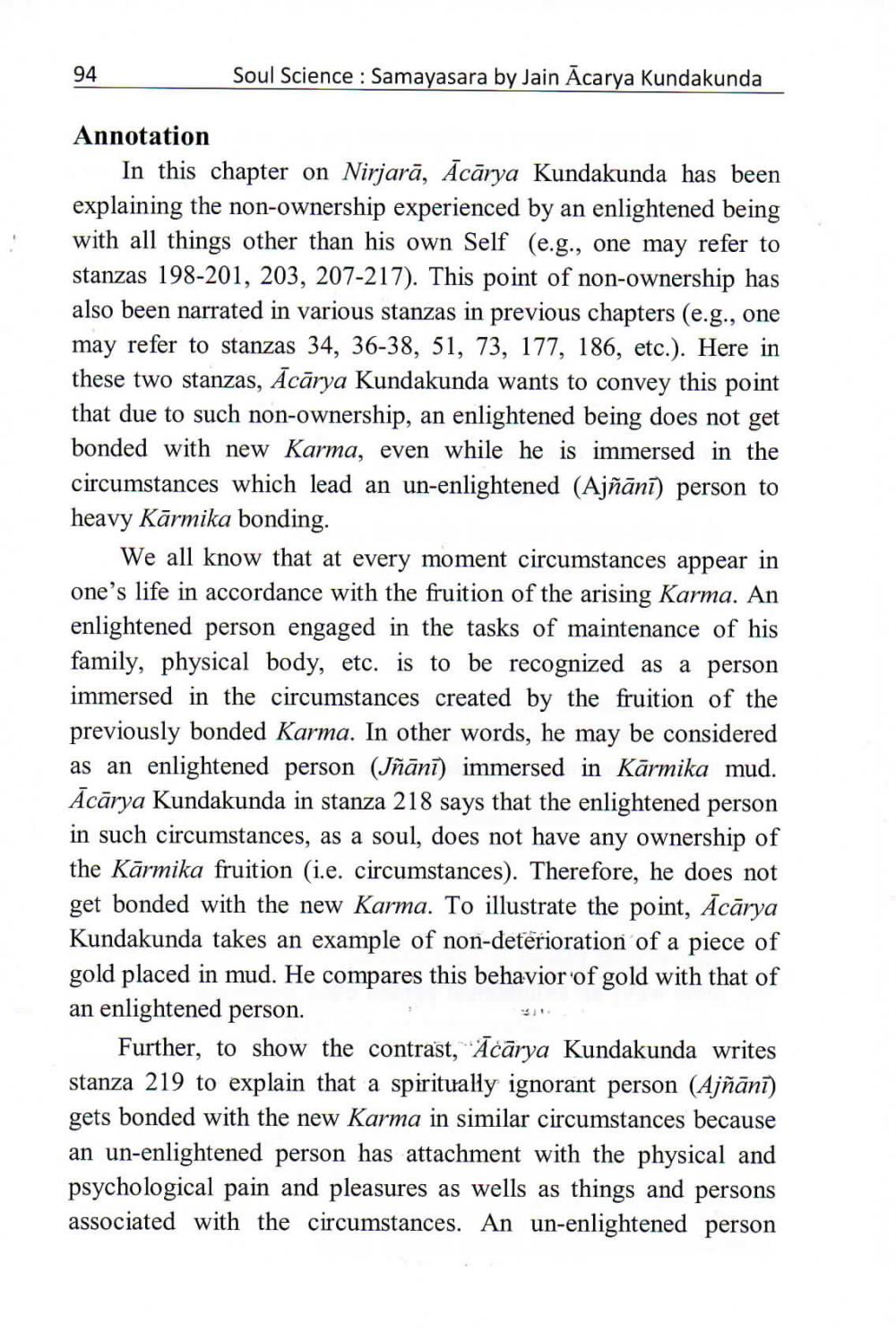________________
94
Soul Science : Samayasara by Jain Acarya Kundakunda
Annotation
In this chapter on Nirjarā, Ācārya Kundakunda has been explaining the non-ownership experienced by an enlightened being with all things other than his own Self (e.g., one may refer to stanzas 198-201, 203, 207-217). This point of non-ownership has also been narrated in various stanzas in previous chapters (e.g., one may refer to stanzas 34, 36-38, 51, 73, 177, 186, etc.). Here in these two stanzas, Ācārya Kundakunda wants to convey this point that due to such non-ownership, an enlightened being does not get bonded with new Karma, even while he is immersed in the circumstances which lead an un-enlightened (Ajñānī) person to heavy Kārmika bonding.
We all know that at every moment circumstances appear in one's life in accordance with the fruition of the arising Karma. An enlightened person engaged in the tasks of maintenance of his family, physical body, etc. is to be recognized as a person immersed in the circumstances created by the fruition of the previously bonded Karma. In other words, he may be considered as an enlightened person (Jñānī) immersed in Kārmika mud. Ācārya Kundakunda in stanza 218 says that the enlightened person in such circumstances, as a soul, does not have any ownership of the Kārmika fruition (i.e. circumstances). Therefore, he does not get bonded with the new Karma. To illustrate the point, Ācārya Kundakunda takes an example of non-deterioration of a piece of gold placed in mud. He compares this behavior of gold with that of an enlightened person.
Further, to show the contrast, Ācārya Kundakunda writes stanza 219 to explain that a spiritually ignorant person (Ajñānī) gets bonded with the new Karma in similar circumstances because an un-enlightened person has attachment with the physical and psychological pain and pleasures as wells as things and persons associated with the circumstances. An un-enlightened person




